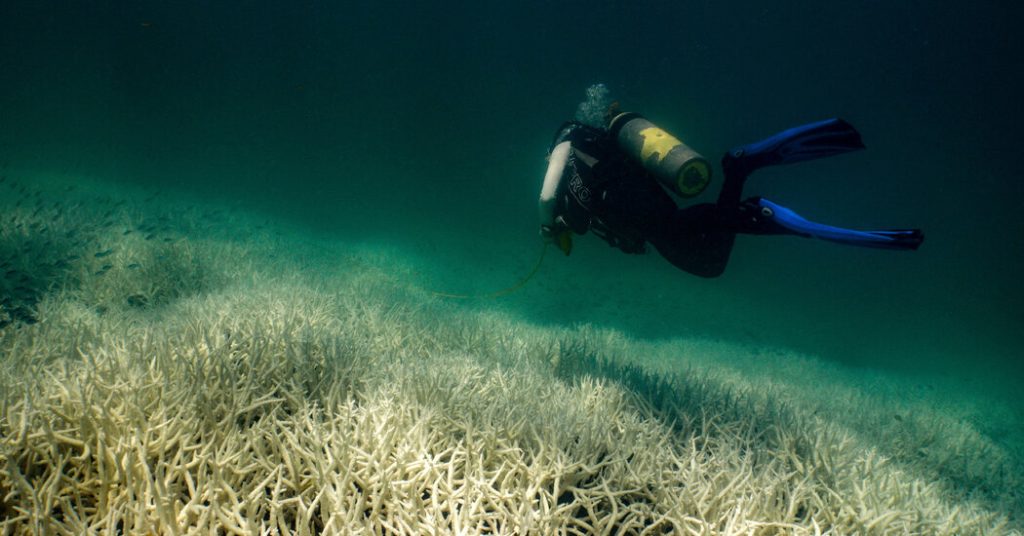The world’s coral reefs are currently experiencing a global bleaching event due to unusually high ocean temperatures, marking the fourth such event on record. Coral bleaching occurs when corals become stressed and lose the symbiotic algae they need to survive. These ecosystems are crucial as they support a quarter of ocean species, provide food for millions of people, and protect coastlines from storms, with an estimated annual economic value of $2.7 trillion. Despite warnings from scientists and leaders, greenhouse gas emissions continue to rise.
Substantial coral death has been confirmed in areas like Florida and the Caribbean, particularly affecting staghorn and elk horn species. To declare a global bleaching event, all three ocean basins that host coral reefs must experience bleaching within a year, affecting at least 12 percent of the reefs in each basin. Currently, over half of the world’s coral area has experienced bleaching-level heat stress in the past year, with this number increasing weekly. The current event, expected to be the most globally extensive bleaching event on record, is linked to the weakening of El Niño conditions.
Bleaching has been observed in 54 countries and territories worldwide, indicating the widespread impact of this event. Areas like the Great Barrier Reef in Australia are experiencing severe bleaching, with up to a third of surveyed reefs showing extreme bleaching. As coral species known for thermal resistance are bleaching and even reefs in climate refuges are affected, urgent global action to reduce future bleaching events is emphasized. Scientists are exploring various strategies, including developing coral that can tolerate higher temperatures and studying migration patterns in response to climate change.
Research has shown that the impact of ocean acidification, caused by increased carbon absorption, makes it harder for corals to build and maintain reefs. A 2018 report indicated that a global temperature increase of 1.5 degrees Celsius would result in significant coral reef loss, with virtually all reefs disappearing at a 2-degree increase. Current projections point to a 2.5-degree temperature rise by 2100, highlighting the urgency for action. Despite the challenges, scientists like Dr. Hoegh-Guldberg remain hopeful that by taking decisive action, the problem of coral reef degradation due to climate change can be addressed.
Efforts to address the bleaching events are ongoing, including research on coral adaptation, habitat restoration, and carbon emission reduction initiatives. The severity of the current bleaching event underscores the need for collaborative global efforts to mitigate climate change impacts on coral reefs. Innovations in science and technology, combined with policy changes and public awareness, will be crucial in preserving these vital marine ecosystems for future generations. It is essential for countries, organizations, and individuals to come together to combat climate change and safeguard the future of coral reefs and the countless species that depend on them.


